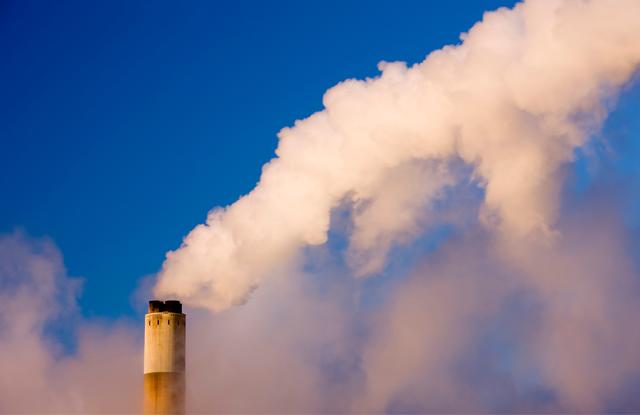The climate and ecological crisis is a public health crisis
Mon, 06/12/2023 - 15:25

Blog by Roz Davies, Co-Chair of Yorkshire and Humber Climate Commission's Climate Adaptation and Resilience Panel, CEO of The Green Estate CIC and Associate Director of Thrive by Design (LYPFT NHS FT)
The climate and ecological crisis we face is our most serious public health crisis. This is why the Yorkshire and Humber Climate Commission has joined forces with the Association of Directors of Public Health Yorkshire and Humber (ADPHYH) to make sure public health and climate change agendas are fully linked.
Whether we are talking about air pollution, extreme weather events or the sharp decline in biodiversity, there is a huge impact on our health and without action this will be disproportionately felt by the most vulnerable people in our society.
In the UK, air pollution is the largest environmental risk to public health. Annual mortality from human-made air pollution in the UK is estimated at between 28,000 and 36,000 deaths every year. Higher air pollution and attributable mortality rates are found in areas of greater socio-economic deprivation in the UK.
Last summer (2022), we experienced unprecedented heat waves with the Office for National Statistics recording 3,271 excess deaths in England and Wales. This average of 82 excess deaths per day during heat periods is 6.2% higher than the five-year average. The excess rate was 2,803 for people aged 65 years and over, which is the highest number since the introduction of the Heatwave plan for England in 2004.
The UK is one of the most nature depleted countries in the world. More than one in seven native species face extinction and more than 40% are in decline. Loss of biodiversity results in greater risk of infectious diseases, food insecurity and poor nutrition, less access to nature sourced medicines and research, and loss of access to quality green space and connections with nature.
Access to quality green and blue infrastructure and connecting to nature is good for our mental and physical health. What's more, it is disproportionately good for the health of people from poorer and more disadvantaged communities. Unfortunately, people from these communities are less likely to have access to quality green and blue infrastructure, for example the most deprived urban areas have five times fewer public parks and lower quality green spaces than the most affluent areas.
Climate and health leaders working together
The Yorkshire and Humber Climate Commission and the Association of Directors of Public Health Yorkshire and Humber are working together to find ways to reduce carbon emissions, build adaptation and resilience into our places, and cut the potential to worsen pre-existing health inequalities, with the intention of enabling a just transition.
I am delighted this important partnership has been built.
The Commission has convened an extensive network, reaching across sectors and geographies. This network can shine a light on good practice, helping enable it to spread as it brings people and organisations together to have a collective and more powerful voice. The public health community across our region has considerable expertise and understanding of the determinants of health and health inequalities, the impact on communities, and local solutions which are proven to work.
We know there are no easy answers to the complex and inter-related challenges that face us, but together we will use all our resources, knowledge and power to influence policy and practice across our region and beyond.
We are already working together, supporting every local area to use the Local Authority Adaptation Toolkit. This five-step process helps prepare for impacts that both the current and future climate could have on each local authority, their residents, and the services they provide.
We have been hosting events and conversations in the run up to an impact session held on 9th June, which explored adaptation and resilience, and the climate and ecological crisis’ relationship with health inequalities. This included presentations from renowned national academics involved in the Lancet Countdown on health and climate change and local case studies. That session will result in a set of recommendations for our health and care systems.
As the Organisation for Economic Co-operation and Development (OECD) articulates in its article on Climate Change and Health; whether we are talking about global, regional or local contexts, those who will suffer the greatest consequences include:
- People who are on low incomes, in high risk and insecure jobs.
- Those living in poor quality housing conditions and unsafe neighbourhoods with poor air quality.
- People from ethnic minority communities who face discrimination and social exclusion.
- People with limited access to good quality education and health care services.
- People who have higher risk of disease because of poor hygiene and unhealthy diets.
Tried and tested solutions
The good news is that across our region and beyond we have huge amounts of knowledge, tried and tested solutions and innovations.
The Grey to Green strategy in Sheffield is increasing biodiversity across the city, which in turn improves air quality and increases the ability for people to connect with nature. Sheffield and Bradford have both introduced Clean Air Zones (CAZ), with reports estimating the Bradford CAZ will reduce nitrogen dioxide by 35% and carbon by 147,000 tonnes.
Groundwork have been working to reduce pollution and improve air quality around schools through their Breathe Easy Schools project, planting trees and hedgerows as natural air cleansers.
The York Community Woodland planted 50,000 trees - with the aim to eventually plant a tree for every resident. The project will turn 78 hectares of ex-farmland into a thriving nature reserve, where people can relax, contemplate and breathe. You can learn more about this project and how it’s evolving by watching Cllr Paula Widdowson’s talk in our recent Delivering Impact session on nature-based solutions.
As William Gibson memorably stated: “The future is already here – it’s just not very evenly distributed.”
Both the Yorkshire and Humber Climate Commission and the Association of Directors of Public Health Yorkshire and Humber are committed and determined to share and spread our knowledge, resources and ideas to protect the public health of all our communities, both now and in the future, and ensure a just transition into a changing and uncertain world.
You can get involved by:
- Subscribing to the Commission's newsletter
- Having your say on the Commission’s digital engagement platform
- Taking the Yorkshire and Humber Climate Commission pledge
- Learn more about the shared ambitions of the Yorkshire and Humber Public Health Network
Blog by Roz Davies, Co-Chair of Yorkshire and Humber Climate Commission's Climate Adaptation and Resilience Panel, CEO of The Green Estate CIC and Associate Director of Thrive by Design (LYPFT NHS FT)





